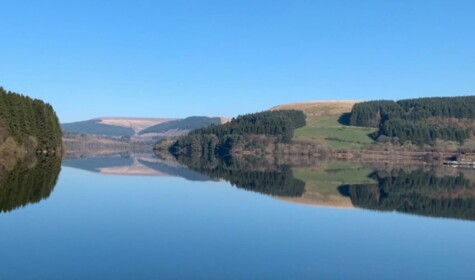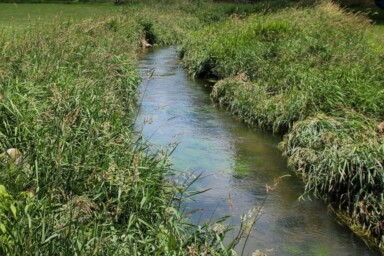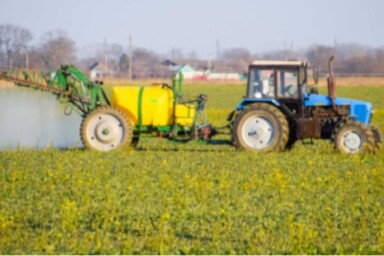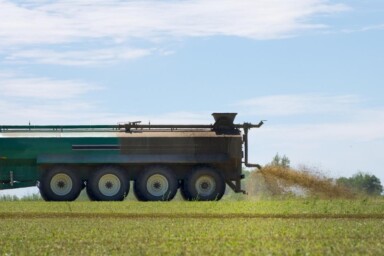The cluster of drinking water catchments across the Brecon Beacons supply almost half of the drinking water Dŵr Cymru Welsh Water provides to customers every day – that’s more than 400 million litres of water, equivalent to 160 Olympic-sized swimming pools. But it’s not just water that make the Beacons extraordinary. Communities, biodiversity, agriculture, forestry and tourism all play a part in making it such an iconic landscape that provides so much for so many.

As a water company, we need to treat water to remove a range of contaminants to ensure we serve our customers safe, wholesome drinking water.
For example, pesticides enter our water ways from a variety of sources including our gardens and allotments, parks and sports grounds and from farms. Our routine water monitoring programme has detected increasing traces of pesticides in areas we have never seen them before, and therefore more treatment is needed.
Sediment, which has to be filtered out, enters water courses from a number of sources including landslips and cultivation, and that sediment can carry pathogens, nutrients and agricultural chemicals, all of which need to be removed as they can impact the safety and enjoyment of our drinking water.
And these are just some of the water quality risks we deal with daily. As a result of climate change, we can expect to see more erratic floods and droughts, and we may even see different animal and plant diseases that we have not encountered before in the UK. This could mean more erosion of soils, new pathogens or veterinary medicines finding their way into drinking water catchments. We may start to see changes in food production trends – for example more home-grown fodder and horticulture expansion could mean detecting more pesticides being used in areas where we aren’t used to dealing with them.
While we already work hard to respond to these changes, we believe there is a huge benefit to be gained from trying to get ahead of the risks. That is why we are shifting our emphasis from reactive treatment of water to proactive measures to reduce or prevent water quality issues before they happen. We will, of course, treat water to make it safe and wholesome to drink, but we believe that by focusing on the management of water within the wider environment we can reduce the chemicals and energy needed in the treatment process – which is better for everyone.
Considering some of these issues in the context of drinking water may help clarify why it is important to adapt certain practices. However, we don’t want to implement more actions for overstretched farmers to juggle, because many of the actions needed to improve water quality are the same actions being discussed in relation to sustainable food production – improved soil husbandry, proactive animal health planning and caring for our precious habitats – including restoring them where needed.
The Brecon Beacons Mega Catchment (BBMC) is a Welsh Water-led initiative, and we’re now getting underway with an active programme of collaborative land management and engagement trials. We want to explore new ways of working – on the land and with each other.

We are a growing partnership of individuals and organisations representing farming, forestry, community, tourism, academia and ecology. This is a network we want to expand further to encompass other elements, but the most valuable partnerships we have are with the farmers and community members at a grass roots level who can bring their experience and ideas to bear, helping us develop and trial these new ways of working. Collaboration has recently become another fashionable term to use in land management discussions. But we believe the value of coordinating our expertise and resources with others, means that we can achieve far more together than we can achieve individually. We are not a major landowner in these drinking water catchments, so we must work in partnership with others if we are to have a positive impact.
For example, inspired by a knowledge exchange with our friends working in the Catskills catchment which supplies New York (widely recognised as one of the most successful catchment management examples globally) we are trialling a new approach to smarter nutrient applications with the Beacons Water Group – a farmer led group in the heart of the Beacons. Here, we will be using data on drainage patterns across individual fields and whole farms to identify ‘spread / no spread’ zones to reduce nutrient run off to water courses and make more efficient use of manures.
We’re also scoping out the restoration of damaged areas of peatbog to reduce water quality risks of sediment and colour compounds from eroding peat. In addition, this restoration should prevent further carbon emissions and regulate peak water flow. But again, we will need to work with a range of partners to deliver this. There are many peat restoration activities taking place across the country, but importantly, we will be working closely with local graziers to explore how best to share information on the importance and ambitions of peatbog management, and how to monitor the success of the project and make more locally based management decisions that are right for the conditions and the season.
We are also exploring opportunities for working with groups of farmers to develop more integrated livestock health planning, biosecurity and quarantine that will support livestock health as well as reducing pathogens and medicines lost to water.
We will be trialling these initiatives in the Brecon Beacons with a view to rolling these new ways of working out in the drinking water catchments throughout Wales. These results cannot be achieved over night and our ambition is to deliver long term sustainable solutions to safeguard our environment and drinking water for generations to come. We are keen to hear from any new partners who would be interested in working with us to deliver these ambitions.
For more information contact bbmc@dwrcymru.com.






